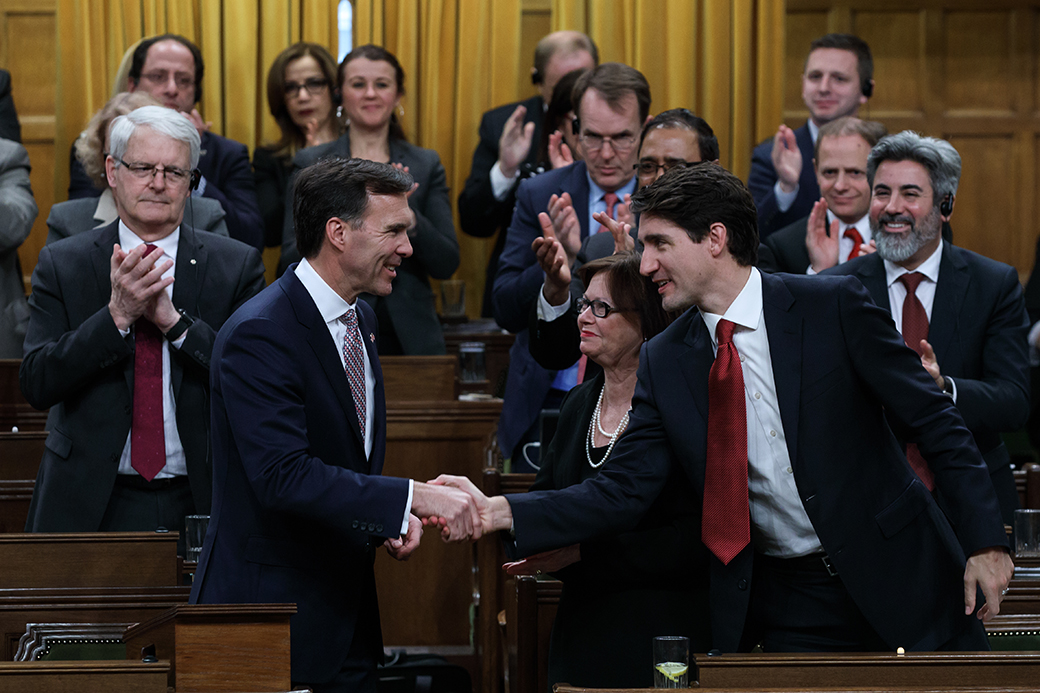“Further details of the next agricultural policy framework will be announced over the coming year…” So states the 2017 federal Liberal budget released on March 22.
I had hoped there would be a bit more of an attempt to deal with the pressing issues related to agriculture.
When I came upon this statement on page 108 of the 2017 budget, I couldn’t quite believe what I was reading.
Another “stay-tuned” budget, with little commitment and definitely little vision for how the agricultural economy of this country might be best developed in the interests of community, family farmers, climate change and clean food.
Still no policy framework and still no discussion of pressing issues such as retiring farmers, land tenure, preserving the family farm, poor farm incomes, or how best to encourage sustainable agriculture, farm cooperatives, community trusts, financing and micro-loans, etc. Of all the ideas that might be tried, this budget came up shamefully empty.
Beyond mentioning working toward eliminating tariffs, launching initiatives to encourage science and value-added agri-business, the 2017 federal budget was remarkable in its lack of understanding, insight and action.
It is not that the federal government has not received guidance or clear recommendations.
Here is what one of several recommendations from the National Farmers Union submission to the pre-budget consultations of the Finance Committee stated on the most pressing of issues — intergenerational transfer of family farms:
“The average age of farmers in Canada is rising and the number of farmers under age 35 is falling. We are in the midst of a crisis in inter-generational transfer. There is an urgent need for measures to assist young people to begin and continue farming. Measures to promote sustainable incomes for all farmers will help young people choose farming as an economically viable career. Beginning farmers require mentorship and training, as well as assistance in gaining access to land, especially options for secure land tenure that do not involve crippling debts.
The NFU recommends the federal government develop mechanisms for farm family intergenerational land transfers that do not rely on loans and interest payments. Fiscal measures should be created that would promote community-based financing options and community-owned land trusts and land banks to ensure food production by local farmers. Canada also needs an income-assurance plan for beginning farmers to assist them in becoming established and support their long-term success. A retirement savings program or pension plan specifically designed for farmers would reduce their need to rely on selling land at high prices to fund their retirement.”
As noted in other columns I have written, there are many, many ways of implementing these recommendations. These two paragraphs clearly and succinctly sum up what is required. Budget 2017 did not even mention new farmers, but encouraged us to wait until next year for a comprehensive agricultural policy under Growing Forward 2018.
Disheartening.
Hearken back to the Alternative Federal Budget 2017 (AFB) published on March 9 by the Canadian Centre for Policy Alternatives for a clear picture of the choices required for food security and sovereignty in Canada. Among its comprehensive economic policies, the AFB 2017 maps out strong policy actions to ensure family farming in Canada gets back on track. It also recognizes the importance of small farms in helping to mitigate climate change, recognizes the need to drastically improve farm incomes, and supports the reestablishment of a strong system of publicly funded research to support family farmers. It also recognizes that there is a crisis in intergenerational land transfer.
Here is a summary from the CCPA’s budget publication entitled High Stakes, Clear Choices:
“The average age of Canadian farmers is rising. Older farmers are delaying retirement, while younger people who want to farm are facing barriers that are increasingly difficult to overcome, such as precarious farm income prospects and a fraying rural social fabric. We are in the midst of a crisis in inter-generational transfer. Land is being acquired by farmland investment companies, consolidated into large holdings, and farmed by tenant farmers and hired labour instead of being transferred to younger farm families and new entrants. There is an urgent need for measures to assist young people to begin and continue farming successfully.
- Create a national agricultural climate change mitigation program to help farmers reduce emissions and make their farms more resilient.
- Make farm incomes less precarious by rebuilding or repairing the institutions that give farmers more power in the marketplace.
- Create a new set of mechanisms and training programs to facilitate land transfer to new farmers without requiring them to take on crippling debt.”
Add to this context decades of poor farm incomes as illustrated in this graphic blog by researcher Darrin Qualman, “Agribusiness takes all: 90 years of Canadian net farm income,” and it is incredible that there are any family farmers left in Canada. The fact that there still are underscores the commitment and stamina and stick-to-it-ness of some. But, of course, low farm incomes have taken a drastic toll on the rural population generally. That includes small businesses located in small centres across the country. Family farmers are suffering, but so is all of rural Canada. Without addressing the issue of the farming population, there is no way to solve the rural crisis more generally.
In 2018, the Liberal government plans to discuss agriculture and apparently provide a framework for renewal. We’ll see. So far, the federal government has simply put a whole new spin on the meaning of the farming phrase “next year country.”
Lois Ross is a communications specialist, writer, and editor, living in Ottawa. Her column “At the farm gate” discusses issues that are key to food production here in Canada as well as internationally.





